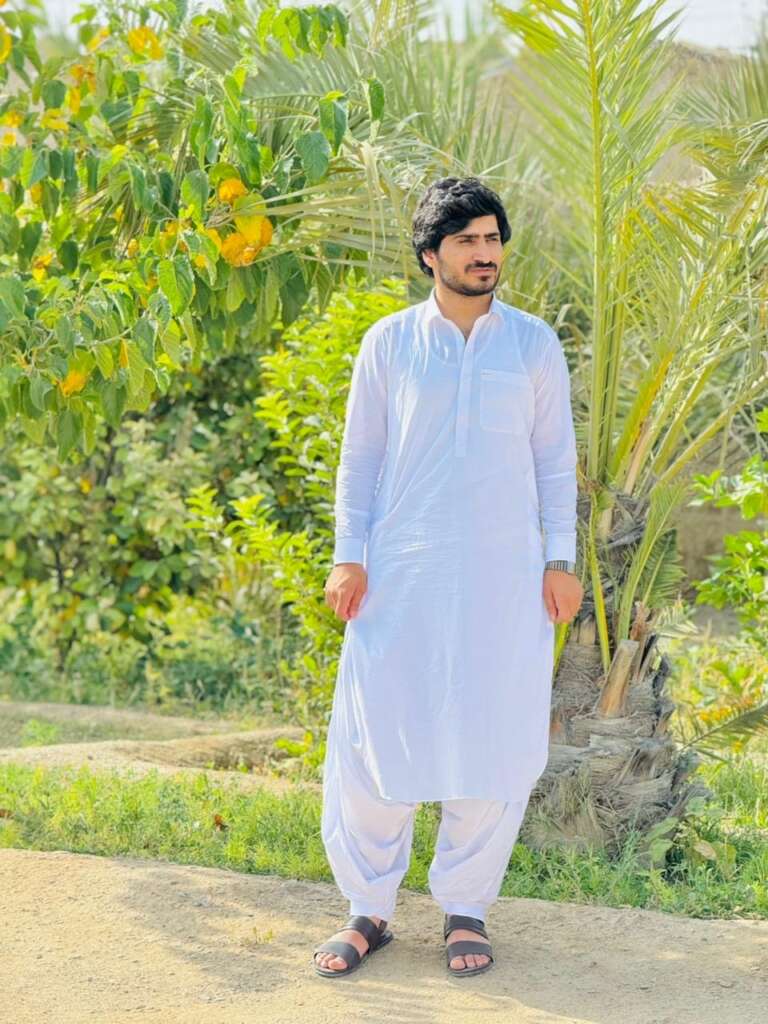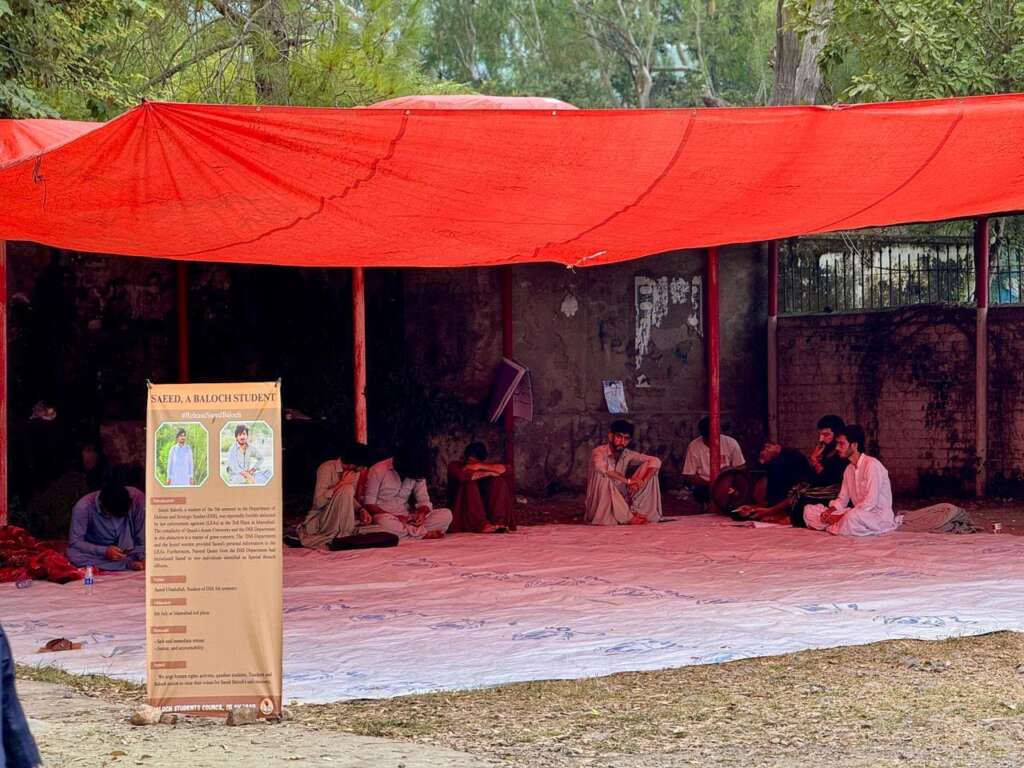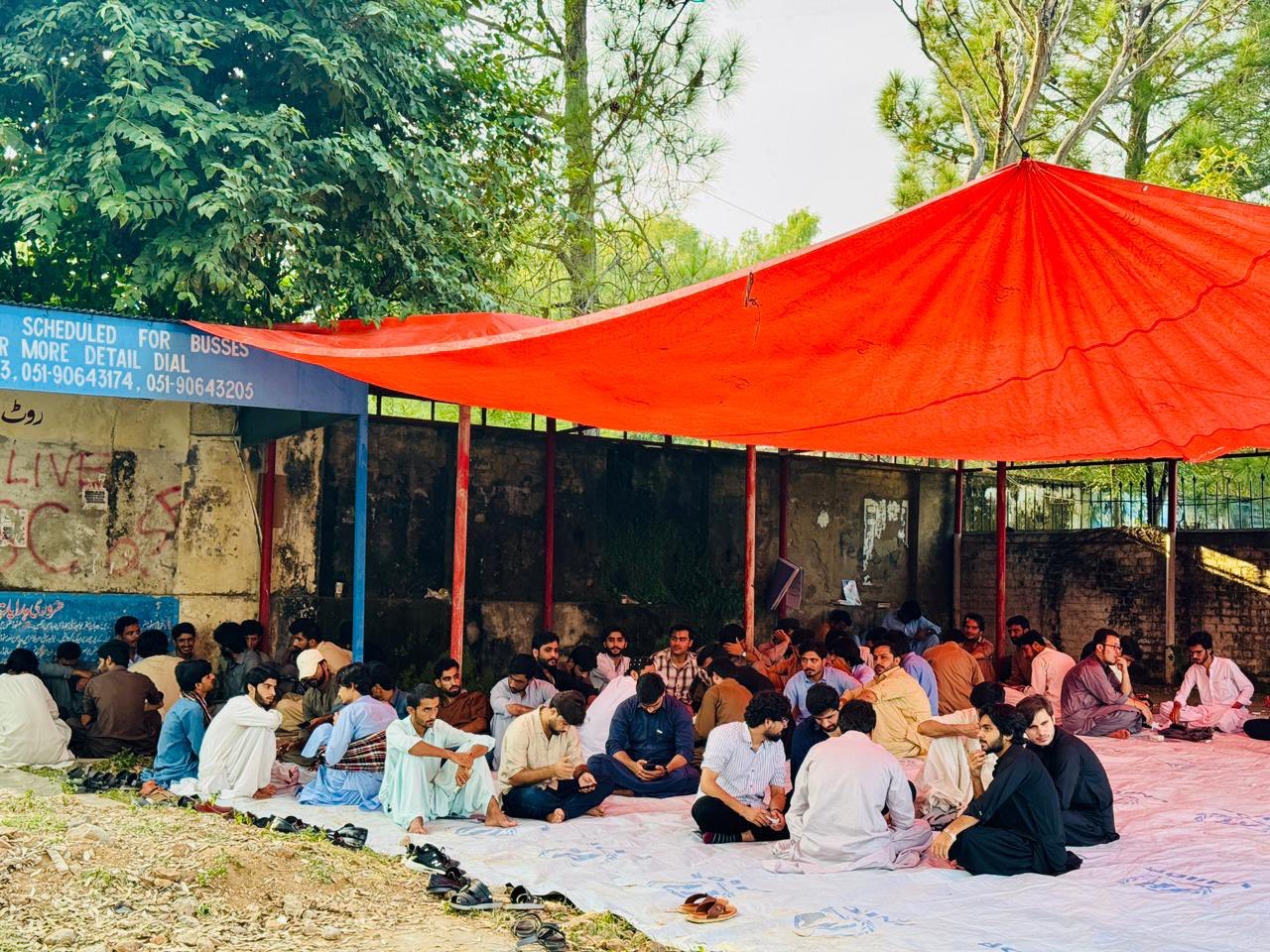The Toll Plaza
The bus was crawling toward the Islamabad toll plaza when the silence cracked. Masked men, rifles slung across their chests, stormed inside. They switched off the cameras, collected the passengers’ phones, and commanded stillness.
Saeed’s hands trembled. He knew this was no ordinary security check. In Pakistan, being Baloch is like carrying a curse.
When one of the men reached his row, he barked, “Where are you going?” His voice was less a question than an accusation. Another soldier-like figure snatched Saeed’s card, glanced at it, and shouted, “Get down—quickly.”
Saeed and his friend pleaded: “Sir, cooperate with us. We are students.” But mercy was not on offer. They were handcuffed, hooded, dragged off the bus.
Fifteen minutes later, one captor tugged the black cloth off Saeed’s friend just long enough for him to collect their bags. “Go back. Sit down into the bus. Don’t move,” the man growled. Then Saeed was gone.
It has been over two months now. His friend, still breaking down when he recalls that night, says it is a day he will never forget, nor forgive.
A Memory That Haunts
For Noor Baksh, the pain began on May 11, 2022. The afternoon was quiet, ordinary. His son, Feroz Baloch, walked to the library at Arid Agriculture University in Rawalpindi, a book under his arm. He promised to return soon.
He never did.
Three years have passed since Feroz was abducted. Yet the emptiness lingers, like an echo that refuses to fade. Students still whisper his name in university corridors. His family still waits at the door.
Noor says softly, “That day was like the day of judgment for me. And I am still living through it.”
The Major’s Voice
That same year, another student, Hafeez Baloch, found himself pulled into the same storm. Hafeez, an MPhil Physics scholar at Quaid-i-Azam University, received a call from an unfamiliar number.
“This is Major Murtaza. I have been assigned to meet you people, specifically the Baloch students. Be at Majeed Huts. Don’t be late.”
The calls multiplied, each sharper than the last. Hafeez ignored them, but the shadows followed.
A faculty member named Farhan gathered Baloch students into a classroom at the School of Sociology. There, the “Major’s work” was carried out: interrogations, harassment, threats.
One student later recalled: “The man who called himself Major Murtaza kept summoning us. He said he could ‘do anything’ if we refused. Those who went were pressed about their friends, their politics, their lives.”
Hafeez tried to resist. He ignored the calls, burying himself in his studies. When he returned to his hometown Khuzdar for the holidays, he continued teaching children at a local academy. But even the classrooms of his village could not shield him. He too disappeared, taken from the very place where he had been shaping young minds.
The University’s Silence

Universities should be sanctuaries of learning. For Baloch students, they are hunting grounds. Quaid-i-Azam University in Islamabad, celebrated as one of the nation’s most prestigious institutions, has become the epicenter of fear.
Among its students was Saeed Baloch, just 22, studying Defence and Strategic Studies in his fifth semester. His name is now etched on protest banners, his absence an open wound.
What makes Saeed’s story different is the role of the university itself.
It began with a message. A clerk named Kamran told him there was an “interview” waiting for him. Saeed was puzzled, he had not applied for any job or internship. Yet the calls kept coming, even from his professor, Naveed Qaiser, urging him to go.
Saeed resisted, choosing to attend class instead. Minutes later, Kamran burst into the room, ordering him out.
Outside, two men were waiting.
“Why are you interviewing me? I haven’t applied anywhere. Who are you?” Saeed asked.
A tall man answered coldly: “We are from the Special Branch. No need to panic.”
Saeed stood his ground. “I am a student. I will not answer personal questions. If you want information, go through the university administration.”
They escorted him to his professor’s office, where the questioning began.
“What is your connection to the student politics?”
“I am not into politics,” Saeed replied.
“You are staying in the hostel illegally.”
“That is for the university administration to decide. Not you.”
The interrogation dragged on for hours before he was finally released.
But the pressure did not stop. A Baloch student later received a call from the hostel warden, Rashid Malik: “Who is Saeed Baloch? Where is he staying in the hostel?” When the student denied knowing, Rashid backtracked, saying, “Leave it, beta, I was looking for someone else.”
The next day, the same strangers appeared at another hostel door. “Where is Saeed Ubaidullah?” they demanded. The student again said he didn’t know. They left in silence.
Two days later, Saeed set out for home. At the Islamabad toll plaza, he was taken. His trail ends there.
A Poster on the Wall
In classrooms, hostels, and libraries, his absence lingers like a shadow. His name, like so many others before him, has been reduced to a poster, taped to protest walls, fading under sun and rain, but never erased from memory.
For Baloch students, universities are not sanctuaries of learning. They are trial rooms. Every corridor whispers of surveillance. Every lecture carries the echo of a knock on the door. And every journey risks ending in silence.


